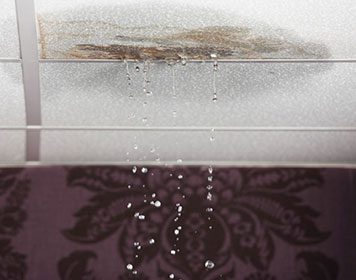Fast action to repair your plumbing is the key to preventing costly water damage in your home. But even before a plumber arrives, there are things you can do to prevent further damage and protect the value of your home.
Let’s take a look at three steps you can take to minimize the damage from plumbing problems:
When the Plumbing is Leaking, Turn Off the Water to Prevent Further Damage.
Leaking water can destroy your property, and the longer the water is leaking, the worse the damage will be. Turning the water off is imperative to stopping the damage before it gets worse.
Often a leak from the ceiling occurs beneath a bathroom with a faulty tub drain or overflowing water. It can also be leaky, cracked, or broken pipes. You can stop more water coming through by turning it off. If the leak happens when the shower or sink is used, stop using it until it is repaired. If you are unsure of the source, and the leak is severe, turn off water to the home.
Drying Out Rooms After a Plumbing Leak Prevents Mold and Odor.
Leaking water can cause lingering issues (even when the leak is stopped), including stains, warped drywall, unpleasant odors, and even mold. You can prevent this by drying out the affected areas. Open the windows, both upstairs and down. The water will be in the floor of the upper level, and the ceiling of the lower, so air flow in both areas is important. You can also run fans to help things dry out faster.
Call Expert Plumbing Services, and Then Call Your Insurance Company.
If you have homeowner’s insurance, then your cleanup and repairs may be covered by your policy. Once you have arranged for repairs through a professional plumber, you can call your insurance company to see if you can get help covering the cost.
A plumbing leak can be a serious problem if left unattended. Contact an expert plumbing repair service right away to stop the problem in its tracks and protect the value of your home. Give us Smoak’s Comfort Control a call at (843) 556-9550 or contact us online to schedule an appointment.

